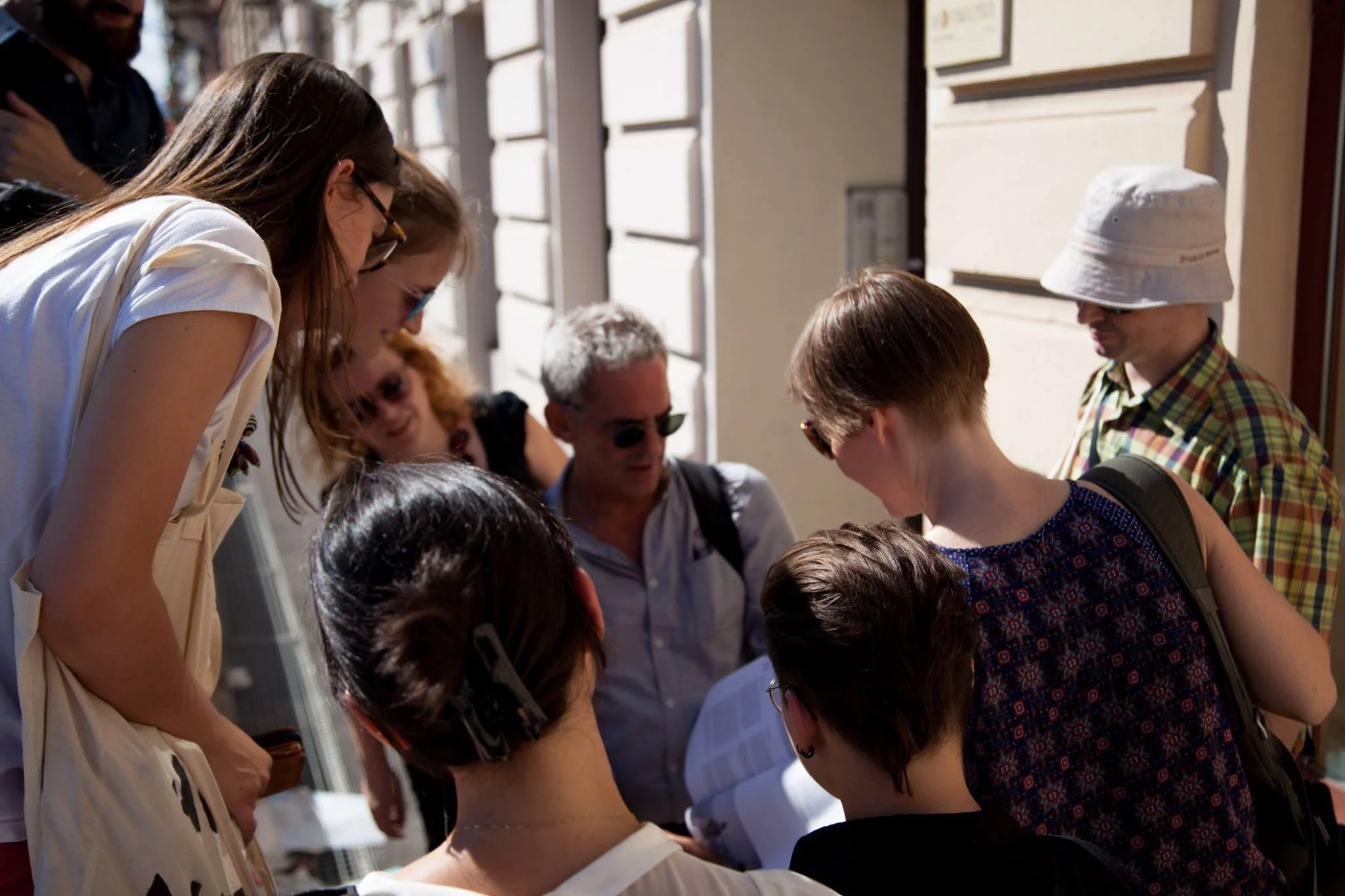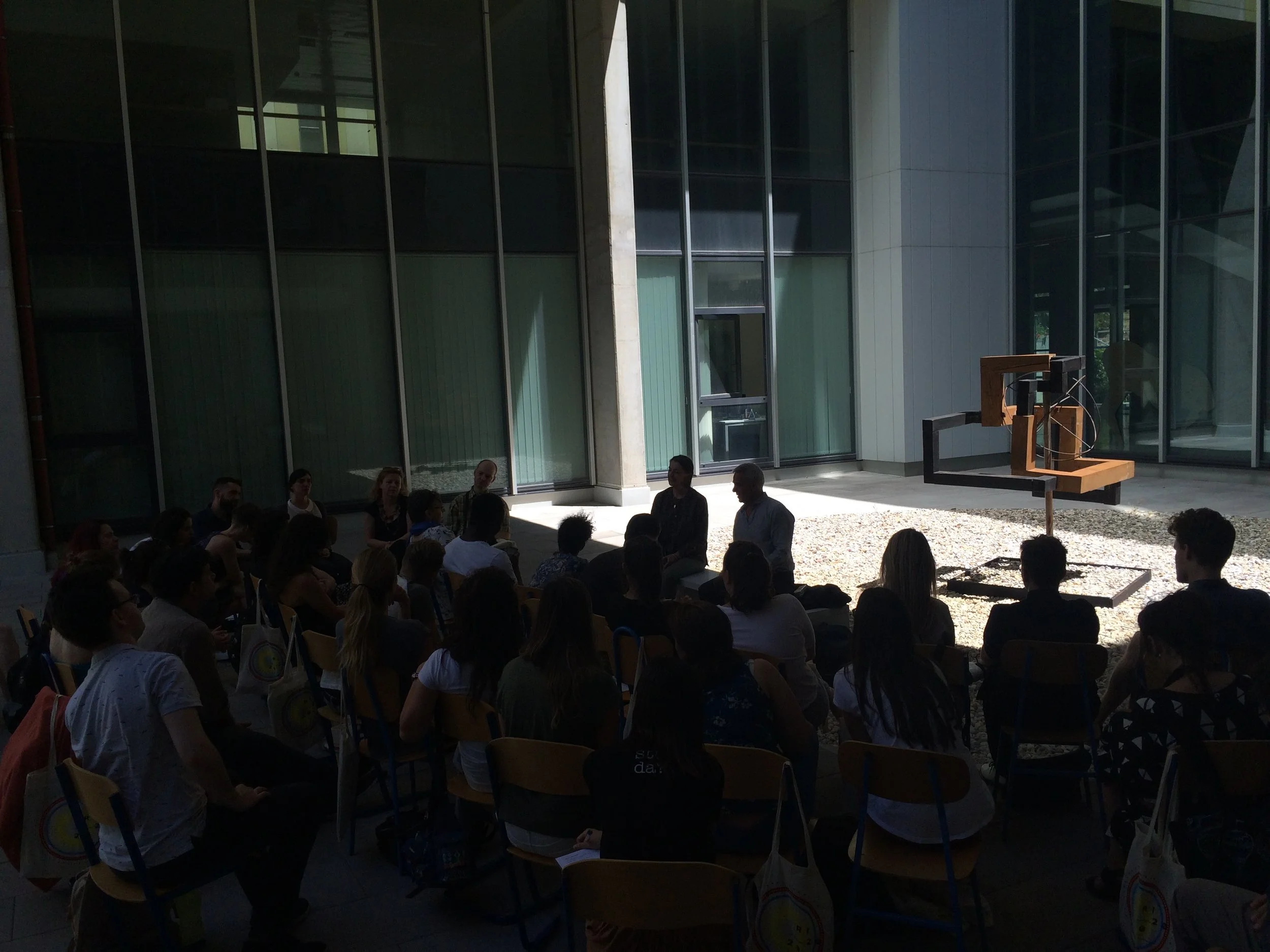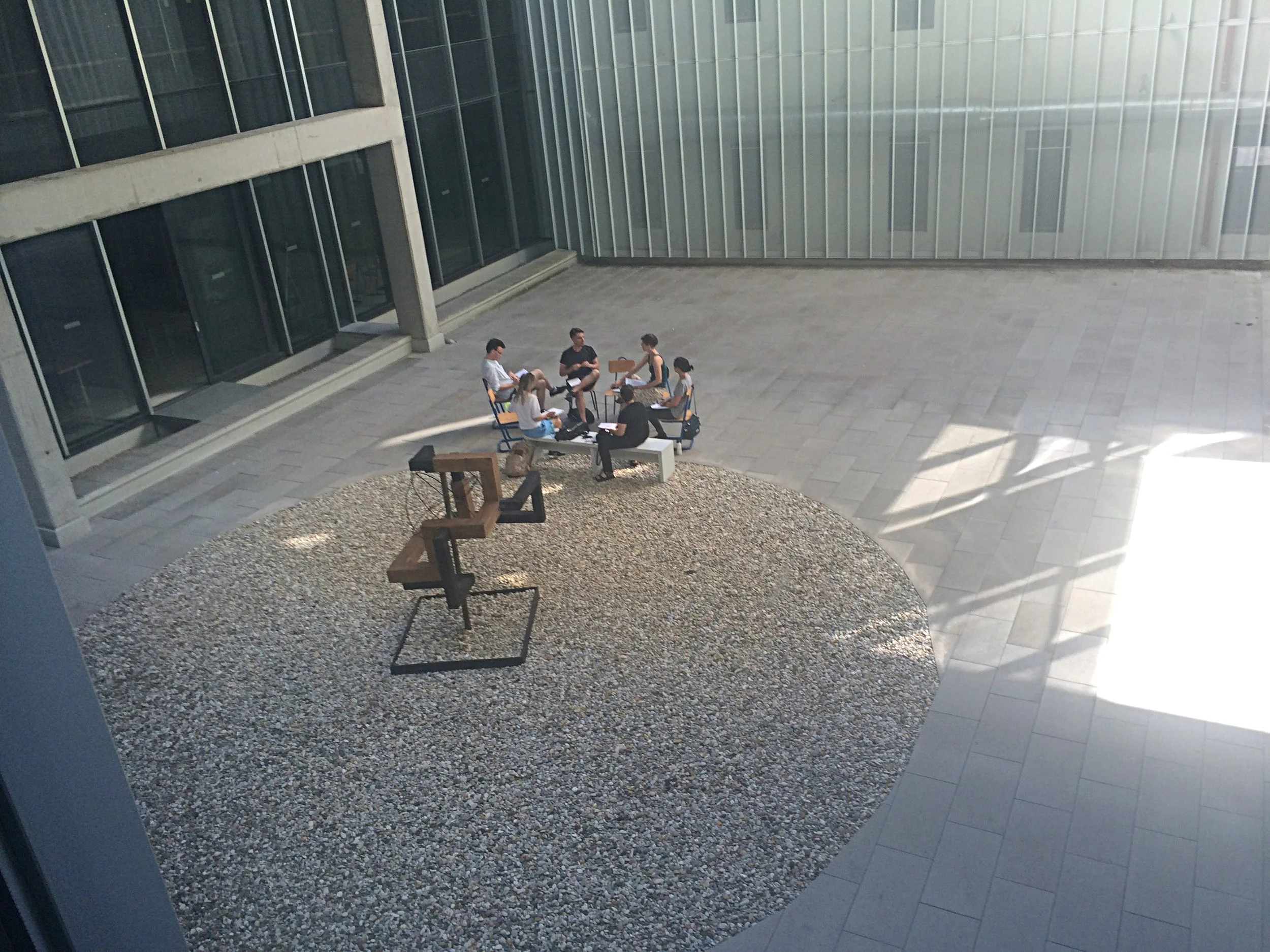





























































Unicult2020 was a joint effort between academics, cultural operators, and local authorities, with the Croatian Cultural Alliance taking the lead in producing the program. The program itself was designed by Daniela Bozanich (formerly known as Urem), with valuable input from Chris Torch.
The Unicult2020 program aims to enhance participants' knowledge and skills in cultural policy and management, with a focus on fostering creative capital and bridging the gap between education and the community.
In its fourth edition, Unicult2020 has evolved into an Interfacing Academy for the winning Master Module in Art, Science, and Technology (MAST). It serves as a creative platform that incorporates both formal and non-formal lifelong learning, creating a comprehensive and transdisciplinary series of events and encounters.
One aspect of the program, called "MBody," focuses on implementing innovative tools and reorganizing society. It promotes transversal management in various areas, including architecture, heritage, spaces, participation, audience, and public policy.
Unicult2020 (2014-2108) was an accredited International Arts & Culture Management and Policy Programme by the University of Rijeka, Croatia. . It adheres to the Bologna Process higher education standards and the European cultural management and cultural policy educational standards. The program aims to enhance participants' knowledge and skills in cultural policy and cultural management, while highlighting the significance of nurturing creative capital as a bridge between education and the community.
The Unicult2020 program is structured intensively, consisting of two parts: theoretical and practical, spanning a total of two weeks and 112 hours.
Initiated by the Department of Culture of the City of Rijeka, as part of Rijeka's successful Bid Book for the European Capital of Culture in 2020, the program is specifically designed to:
- Enhance participants' critical skills in cultural policy, programming, and organization.
- Emphasize the importance of fostering creative capital by connecting education with the community.
- Enhance the intercultural competence of emerging cultural operators and prepare them for international endeavors.
Who should attend?
- Cultural operators and professionals
- Representatives from international organizations and Institutes of Culture
- Academics
- Researchers
- Undergraduate students
- Postgraduate students
- Anyone interested in this topic
Why attend?
Attending the Unicult program will provide you with the following benefits:
- Enhance your knowledge and skills in cultural policy and international cultural relations.
- Develop a critical understanding of the diverse and evolving connections between culture and international politics.
- Engage with key current policy and practitioner concerns through various opportunities.
- Acquire a body of work and experiences that can deepen your knowledge.
- Internationalize your career and expand your professional network in Europe.
- Gain access to a comprehensive bibliography on Culture in External Relations and Cultural Diplomacy.
The Unicult program aims to provide comprehensive professional training in various aspects of cultural practice. It is designed as a collaborative and hands-on learning environment that combines theoretical knowledge with practical fieldwork experience. The program offers a well-rounded education that covers important topics such as cultural identities, rights, professional ethics, and the skills needed to develop inclusive and participatory cultural strategies. Unicult2020 will also provide valuable insights into strategic thinking, financial and legal challenges, operations planning, programming, human resource management, and negotiation.
The faculty of Unicult is composed of highly regarded professors from respected universities in Europe, as well as experts and specialists in the cultural field with international experience and practice.
To ensure effective communication between students and teachers, all courses are conducted in English.
Program structure
The Unicult program aims to provide professional training from various angles of cultural practice.
Lectures
The theoretical component of Unicult Lifelong Learning Programme contains over 40 hours of Lectures over the two weeks of the summer school. Delivered by university professors, cultural management and policy experts, authors and practitioners who are acknowledged leaders in their field of work, the Lectures provide an up to date content and valuable insights that go beyond each student’s experience.
A specific relevant topic of international interest and need is approached during each Unicult2020 edition by our faculty from various perspectives linked to each other in order to provide coherent knowledge and understanding. Lectures are held from Monday to Friday.
Research
Unicult2020 Research section is created in collaboration with the Institute for Development and International Relations (IRMO ), Cul-pol project, The Local Operators’ Platform (LOCOP) and local cultural workers and artists within the Unicult2020 Sub-programme European Capitals of Culture in Focus.
Mentoring Sessions
Group and 1-on-1 mentoring sessions are aimed to deepen our students’ professional, study and research interests and goals and to foster a meaningful exchange and long-term relationships between mentor and mentee. According to the students’ experience, specialization and expectations submitted through our Mentee Application Form one month before the summer school starts, mentees are distributed into Cultural Management and Cultural Policy groups. Group mentorship offers time for networking, peer learning, collaboration and partnership. Each student will also be matched to one mentor in order to assure the 1-on-1 exchange of expertise and the focus on individual projects and development. Mentoring sessions are held during the Advisory hours in a unique and dynamic format from Monday to Friday.
Behind the Scenes
Complementing the study or work experience of our students and promoting intercultural dialogue and cooperation, the program includes a glimpse of the local cultural scene through the Behind the scenes activities. In the evenings and on weekends, students are invited to educational guided visits at the most active institutions and organizations of the city and region or to participate at public events (exhibitions, concerts, movies, conferences) meeting the coordinating teams.
Let’s Talk About Series
LTA series invite you to come, listen and contribute to an open discussion with Unicult2020 Faculty and notable guest speakers who share their diverse experience, perspectives, struggles, personal and career accomplishments with each other and the students in an informal framework. The format of LTA series encourages participants to contribute to the discussion sharing their knowledge and ideas. Therefore, by the end of the meeting everyone could have learned something new from each other.
Curatorial
This year’s edition integrates a special curatorial program held at the Accademia di Belle Arti di Venezia and at the Venice Biennale: lectures, panel discussions and educational visits.
Unicul Sub-programmes:
European Capital of Culture (ECoC) in Focus - supported and developed in partnership with the Institute for Development and International Relations (IRMO) and Local Operators' Platform (LOCOP).
Unicult2020 Local Capacity Building: For the local capacity building and career development of Rijeka's local cultural workers the participation at the programme are facilitated through 3 scholarships which includes free attendance at Unicult2020_third edition.
UNICULT2020 Team (2015 - 2022)
Daniela Urem, Head of the program
Thea Hanasal Soldo, Main head assistant
Diana Ciocan, Main head assistant
Sofija Drecun, Main head assistant
Malbora Krajku, Second head assistant
Arba Hatashi, Third head assistant
Matea Senkic, Cul-Pol coordinator
Unicult Alumni Advisory Board
Daniela Skandul (Croatia)
Goda Klumbyte (Netherlands)
Mattias Desac (Sweden)
Yorgos Taxiarchopoulos (Greece)
Sofija Drecun (Serbia)
Preeti Gaonkar (India)
Tomas Clavijo (Spain)
Unicult program is supported by:
![eu_flag_creative_europe_co_funded_pos_[rgb]_right.jpg](https://images.squarespace-cdn.com/content/v1/58b0491a29687fde0f2fb36e/1526396264862-20OICQ1N97YCV1IQ611I/eu_flag_creative_europe_co_funded_pos_%5Brgb%5D_right.jpg)



































The Creative Cultural Alliance (CCA) is a member organization within Europe, representing professional cultural workers.
Strategy Board
Daniela Urem, President / Education
Gaella Gottwald, Vice president / SOS
Michela Magas, Board member / Innovation
Mission
The Croatian Cultural Alliance establishes close connections and interdependencies between teaching, research as well as the international collaboration, public projects and events. It promotes critical thinking and new forms of cultural policy and management, artistic and intellectual engagement at the intersections of art, culture, science and society.
Vision
For cultural workers and artists it means that there is time, space, and inspiration to discover and develop their own creative voices and showcase their work. Driven by the belief that learning is a lifelong process, we strive to create fast paced programs and services that embrace innovation and build community. We’re a living space, piloting and investigating ways to solve problems and create a better society. We believe that education in arts and culture while creating exemplified art productions will bring change and build stronger futures.
Consortium
Croatian Cultural Alliance (CCA) consortium is made up of nine partners in seven European countries. The consortium is a rich mix of higher education institutions, national research center, national professional agency, cultural association and organization, and a major European network.
CCA consists of professional bodies which are involved in education, research, production and the development and monitoring of professional educational programs. It additionally provides useful resources and supportive networks while students are pursuing educational and career goals.
Nurturing trans-disciplinary art-based research and generating investigatory and long-term projects are equally important as our educational programs. These key aspects of the Alliance’s activity are not intended as isolated and self-contained spheres, but are rather conceived as mutually supplementing contingencies which are continuously and dynamically feeding into each other.